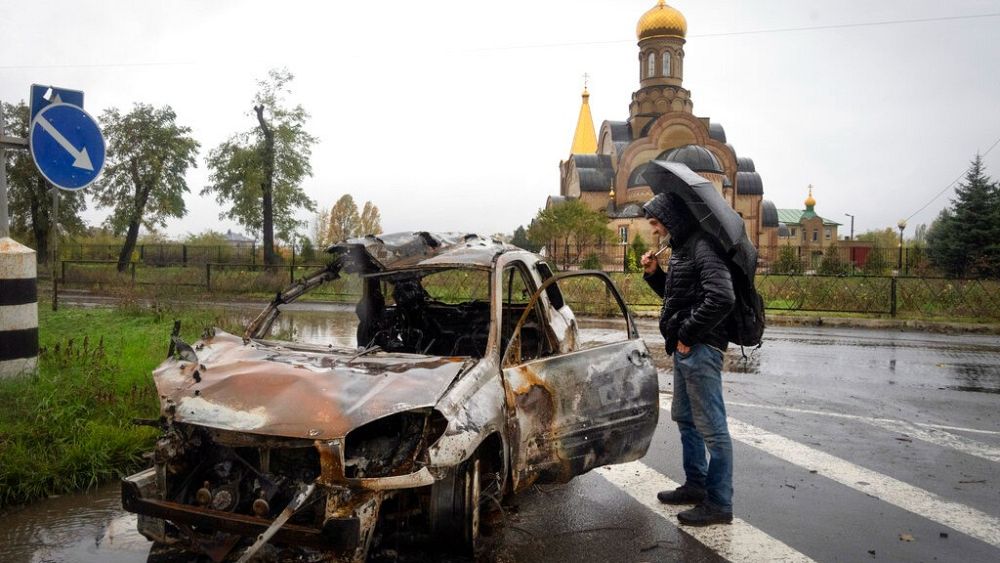Ukraine war: Ukrainian and Russian grain deal could be extended past November

Here are the latest news developments from Russia’s war in Ukraine.
1. Ukraine grain deal could be extended past November
A senior UN official has said that the deal for returning Ukrainian grain and Russian grain and fertiliser to world markets will likely be extended beyond mid-November.
However, Russia’s UN ambassador has said that Moscow needs to see movement on its own exports first.
Russia’s invasion of Ukraine cut off shipments of grain and fertiliser from the two key world suppliers, causing food shortages and rising prices, especially in developing countries.
The deal, brokered by the UN and Turkey in July, has seen more than 8.5 million metric tons of foodstuffs shipped from three Black Sea ports in Ukraine, but it runs out in November, necessitating discussions on a renewal.
“It’s important for the market. It’s important for just continuity. And I’m still relatively optimistic that we’re going to get that. We’re working hard,” said UN humanitarian chief Martin Griffiths, who was in Moscow earlier this month for talks, including about an extension of the agreement.
However, Russia has said that the hurdles for Russian grain and fertiliser to reach global markets remain the same as in July: getting insurance for vessels, conducting financial transactions, finding ports of call for Russian ships and freeing up fertiliser on ships detained at European ports.
Russian envoy Vassily Nebenzia told reporters that “Russia needs to see the export of its grain and fertilisers in the world market, which has never happened since the beginning of the deal.”
On Saturday, Ukraine’s president accused Russia of artificially creating a line of some 150 ships to slow down Ukrainian shipments.
2. Battle for Kherson looms
Ukrainian troops are holding out against repeated attacks by Russian forces in two eastern towns, Avdiivka and Bakhmut, while those on the southern front are poised to battle for the strategic Kherson region, which Russia appears to be reinforcing.
Radio intercepts indicated freshly mobilised recruits had been sent to the front and Russian forces were firmly dug in.
Meanwhile, the Russian-appointed Kherson regional government said it had re-based to the left bank of the Dnipro, Russia’s RIA news agency reported, as forces brace for an increase in fighting.
Russia has been evacuating civilians on the west bank but says it has no plans to pull out its troops.
Ukrainian forces advanced along the Dnipro in a dramatic push in the south at the start of this month, but progress appears to have slowed.
Oleksii Reznikov, Ukraine’s defence minister, said wet weather and rough terrain were making Kyiv’s counter-offensive in Kherson harder than it was in the northeast, where it pushed Russia back in September.
3. Commercial satellites could be targeted by Russian forces in retaliatory strikes
Commercial satellites from the United States and its allies could become legitimate targets for Russia, if involved in the war in Ukraine, according to a Russian foreign ministry official.
“Quasi-civilian infrastructure may be a legitimate target for a retaliatory strike,” Konstantin Vorontsov, deputy director of the foreign ministry’s department for non-proliferation and arms control, was quoted as saying by TASS.
“We are talking about the involvement of components of civilian space infrastructure, including commercial, by the United States and its allies in armed conflicts,” he added.
